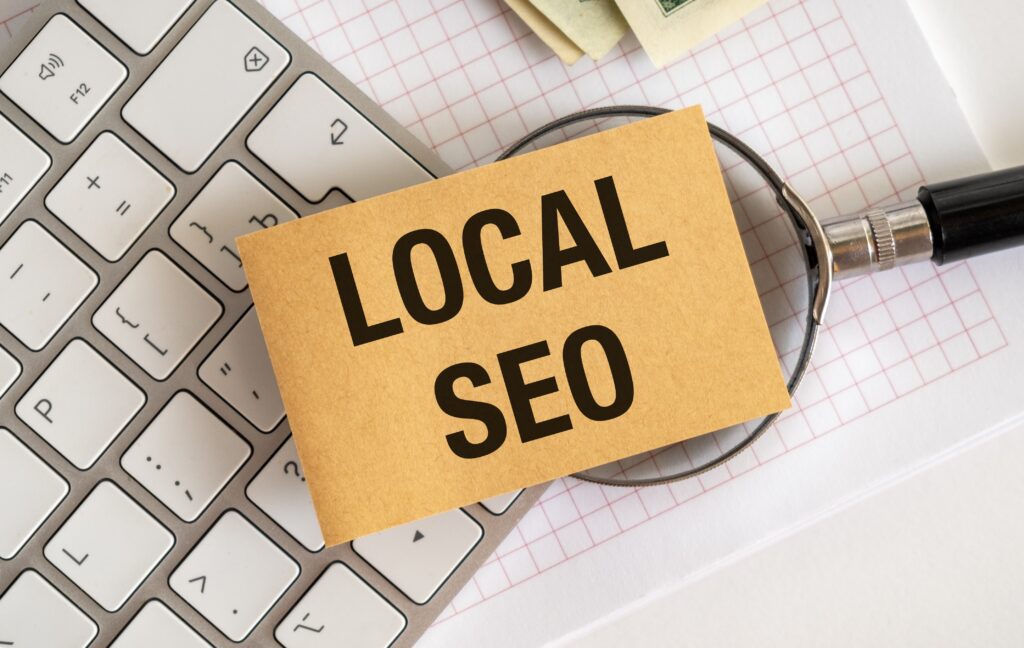
Editor’s Note: This article is part of a series focused on optimizing SEO and websites to help floral businesses get more sales. Check out this collection of resources on the Floral Education Hub for more digital strategy guidance.
Most florists’ service areas include several cities or towns. But when customers search online for a florist in one of those nearby locations, your shop may not come up in the search results because it’s located in a different city. We spoke with a marketing expert about how to ensure those customers are finding your business.
Create Local Pages
It is a big mistake not to include copy about your service area on your website, says Art Conforti, PFCI, founder of Bloomerang Solutions, a floral consultancy agency.
“All Google wants to know is where you are, and all people want to tell Google is how wonderful they are,” he says.
If you want Google to know you service a specific area, you must put that information on your website in a way that makes sense to Google, says Conforti. A lot of shops simply list cities and towns at the bottom of the page, but they don’t provide any context. Others may use vague language, such as, “We service the greater Detroit metropolitan area.” Florists must be more specific if they want online customers to find them, says Conforti.
He suggests creating an individual web pages for each area you service. If your shop is in Detroit, but you also service the surrounding areas of Dearborn, Dearborn Heights, Melvindale, and Hamtramck, you should have a page for each of those locations. Known as “local pages” or “city pages,” these web pages tell Google’s web crawlers that you are a Hamtramck florist and a Melvindale florist, not just a Detroit florist. This can be especially important if there are no retail florists in the actual town or city, Conforti says.
“That little bitty town — Google is looking for somebody and nobody has a page for it,” he says. “Make a page for all the little towns.”
Local pages can include basic information about the city, town or neighborhood you’re highlighting. It doesn’t have to be extensive, but it should not be copied and pasted from another website such as Wikipedia, because Google often ignores or penalizes websites that copy content from other sources. Paraphrase the information yourself or ask an AI tool for an assist.
Each local page should also include a link to featured arrangements specific to that page to track the impact of a local page. One florist who uses Bloomerang’s services, but requested anonymity, says this method showed that his 10 local pages brought in $19,000 in revenue in one year.
Keep Your Content Fresh
Another key to leveraging local pages is to keep the content there fresh. Google and other search engine crawlers constantly scan the internet to see what’s new and relevant. Every time a website is updated, whether it’s with new words or new photos, Google reindexes the page, making it more likely to show up at the top of search results. Websites that never change appear stale to Google, so they may not appear when people search.
Florists can give their local pages a boost by including information about local events, such as parades or festivals, Conforti says. If one of the town’s farms is currently hosting a corn maze, include a line of text with the event’s name, location and dates. Not only does this tell Google that your website has something new to index, but it also promotes your community and your business. People searching for information about that corn maze may be directed to your website, potentially converting them into your customers, too.
Listing current and upcoming events on these local pages can be especially helpful when the events already attract flower buyers. For example, try listing the city’s college commencements and high school graduations and proms, Conforti says.
Laurie Herrera is a contributing writer for the Society of American Florists.

